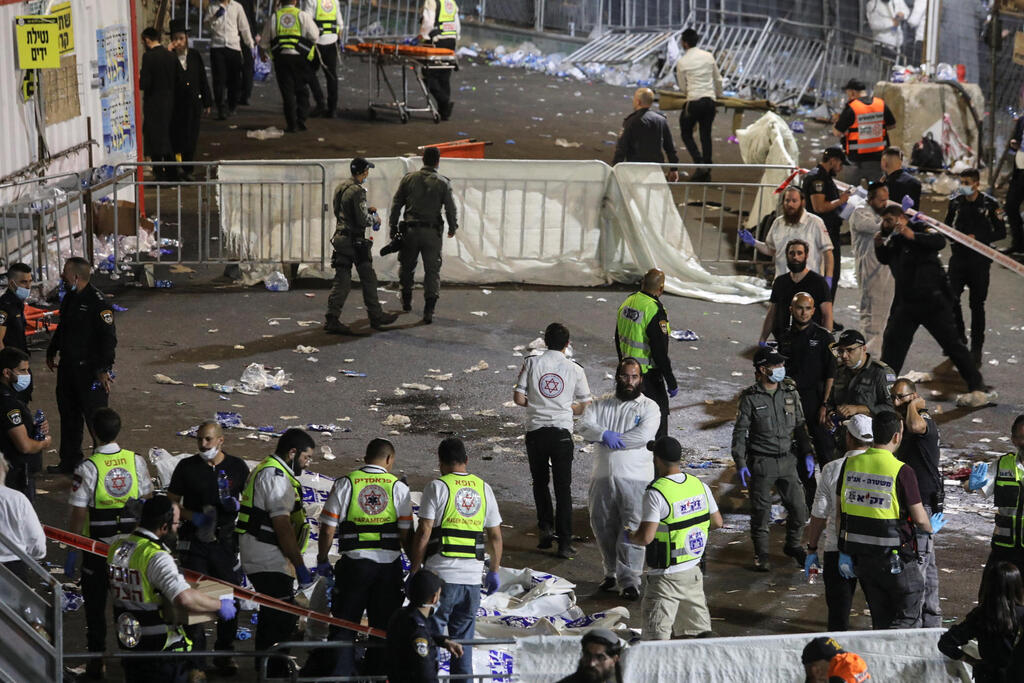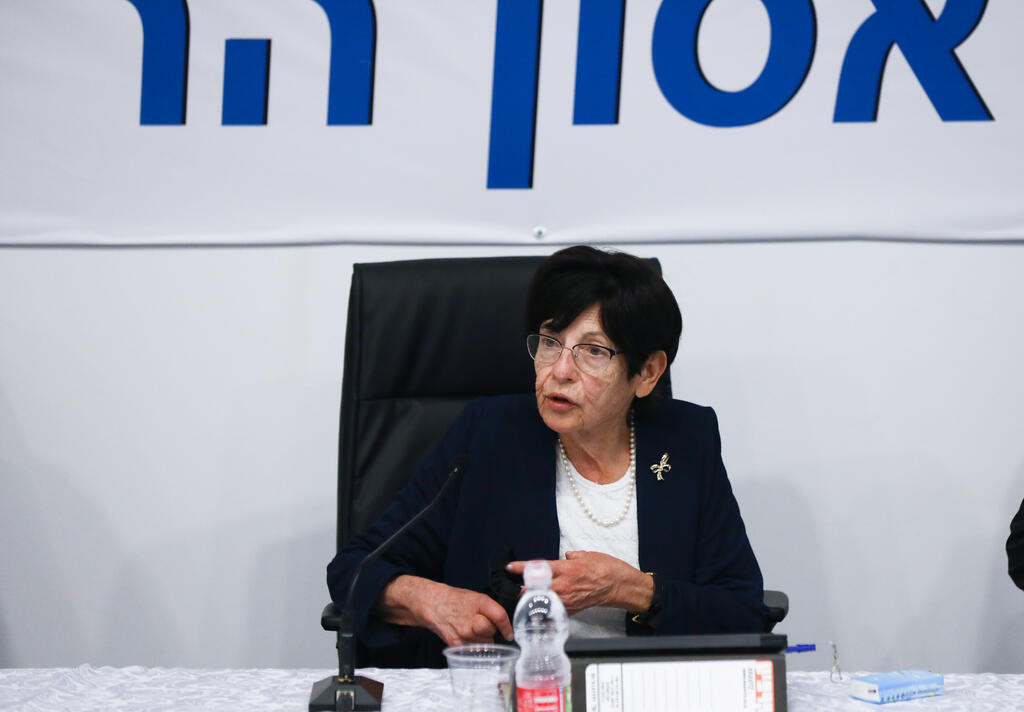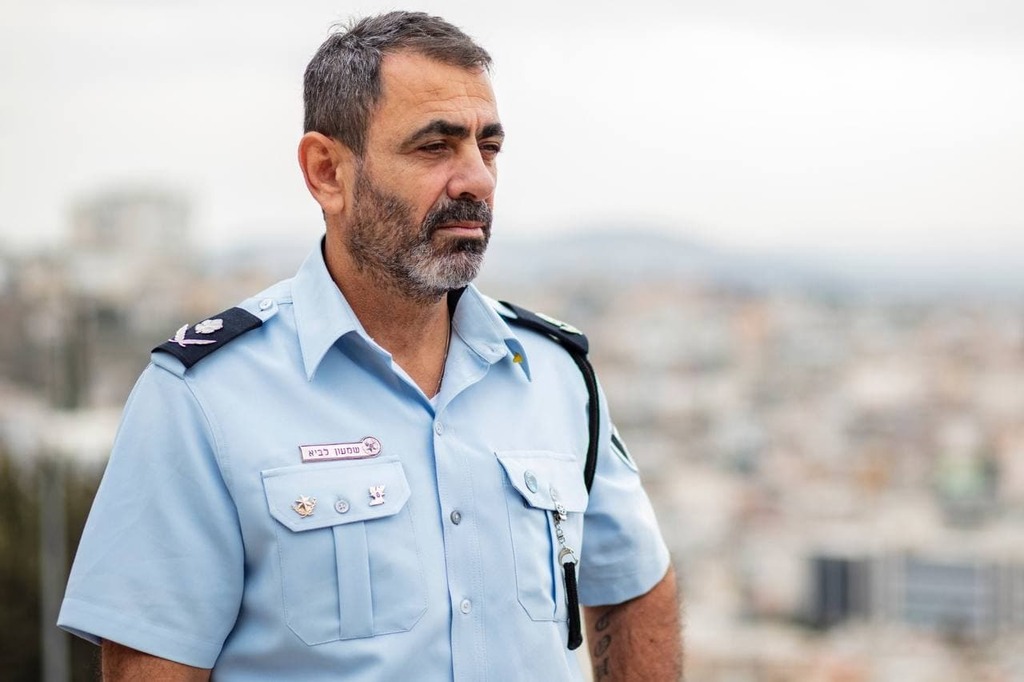A state inquiry into a stampede in April at a Jewish pilgrimage site that killed 45 people, among them U.S. and Canadian citizens, began hearing testimonies on Sunday to determine what led to Israel's worst civilian disaster.
Tens of thousands of ultra-Orthodox Jews thronged the Galilee hillside tomb of second-century sage Rabbi Shimon Bar Yochai on April 30 for the annual Lag B'Omer festival that includes all-night prayer, mystical songs and dance. During the ceremony, part of the crowd surged into a narrow tunnel and 45 men and boys were asphyxiated or trampled.
3 View gallery


Medics and rescue workers attend to the injured at the Lag B'Omer event in Mount Meron
(Photo: Reuters)
Israel's government watchdog years ago deemed the Mount Meron site hazardous. Although the number of worshippers this year at the site was lower than in previous years, it was still beyond those permitted at the time by COVID-19 curbs.
Maj.-Gen. Shimon Lavi, commander of police's Northern District, told the commission on Sunday that due to the coronavirus outbreak and the March elections, "we had no idea what will happen with the Meron festivities."
"My understanding was this - without any decision on the national level, if I begin to make immediate arrangements regarding critical infrastructure [at the pilgrimage site], Meron will probably blow up in my fact on the 29th."
Lavi said that only a day prior, officials discovered that there will be no coronavirus-related restrictions at the event, with any measure being "meaningless" unless event organizers decide to uphold them.
Some Israelis had questioned whether the former government under Benjamin Netanyahu and police were reluctant to further limit the crowd size because of pressure from influential ultra-Orthodox leaders.
Netanyahu had promised a thorough investigation, but his cabinet, which included ultra-Orthodox ministers, never took formal action and major hostilities between Israel and the Palestinian militant group Hamas broke out less than two weeks later.
3 View gallery


Former Super Court chief Miriam Naor, head of the state commission on the Mount Meron disaster
(Photo: Ohad Zwigenberg)
Launched shortly after a new government was sworn in, the state commission of inquiry holds court powers in that it can summon witnesses and require them to produce documents or any other evidence it deems relevant. Its findings will be presented to the government though they are not legally binding.
The hearings are open to the public and will be streamed online.
If the panel, headed by former Super Court chief Miriam Naor, were to find suspicions of criminal conduct it would have to report those to the Israeli attorney general. Its first witness on Sunday was the police Northern District Commander Shimon Lavi.
First published: 11:15, 08.22.21


